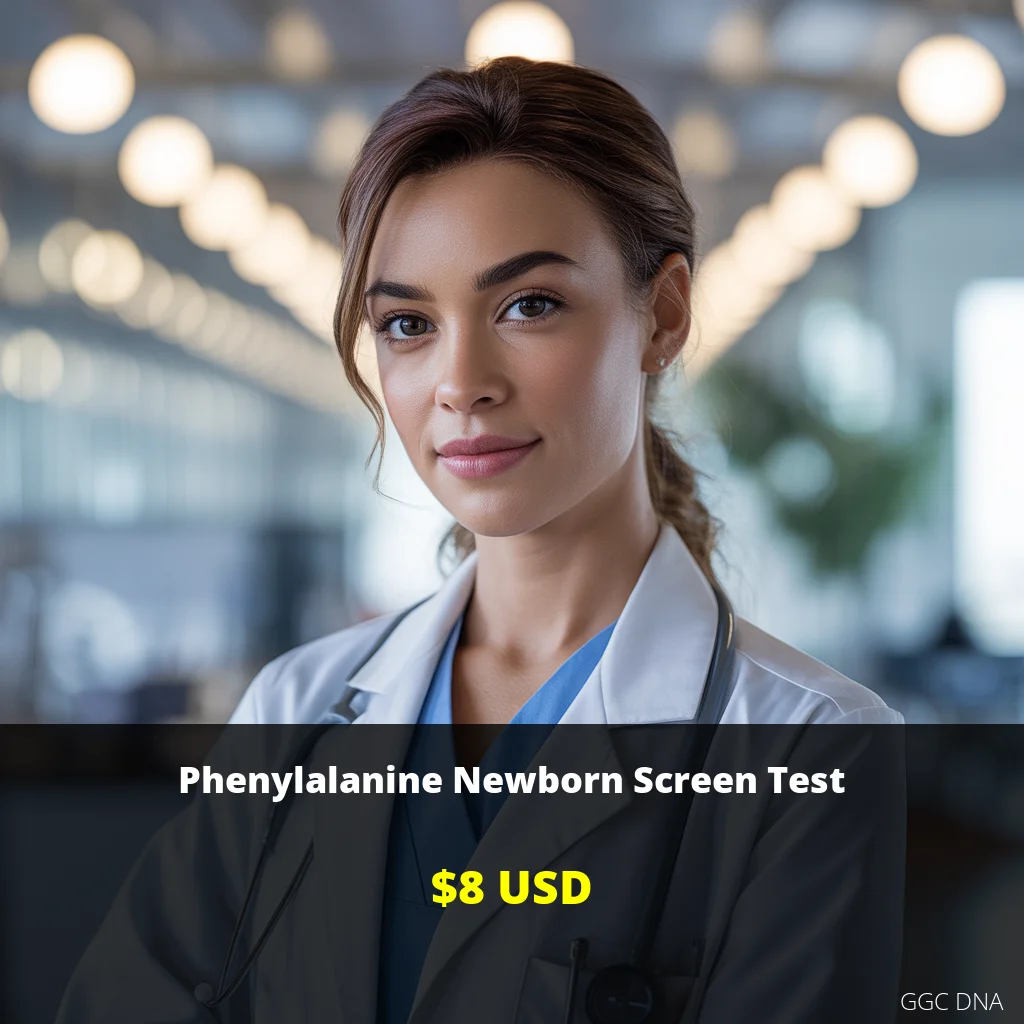Phenylalanine Newborn Screen Test
Essential Newborn Screening for PKU Detection
The Phenylalanine Newborn Screen Test represents a cornerstone of modern pediatric healthcare, providing early detection of phenylketonuria (PKU) – a serious inherited metabolic disorder. This life-saving screening test is performed within the first few days of a newborn’s life to identify infants who may have difficulty processing the amino acid phenylalanine. Without early detection and intervention, PKU can lead to severe intellectual disability, neurological damage, and developmental delays.
What Does the Phenylalanine Newborn Screen Test Measure?
This specialized screening test precisely measures the concentration of phenylalanine in your newborn’s blood. Phenylalanine is an essential amino acid found in protein-containing foods. In infants with PKU, a genetic mutation prevents the proper breakdown of phenylalanine, causing it to accumulate to toxic levels in the bloodstream and brain tissue. The test utilizes advanced fluoroimmunoassay technology to detect even slight elevations in phenylalanine levels, enabling early identification of at-risk infants before symptoms develop.
Who Should Consider This Test?
- All newborns within the first 24-48 hours of life
- Infants with family history of PKU or metabolic disorders
- Newborns showing early warning signs such as feeding difficulties
- Infants with musty odor in urine or sweat
- Babies exhibiting developmental delays or neurological symptoms
- Infants with unexplained seizures or behavioral changes
Critical Benefits of Early PKU Screening
- Prevents intellectual disability through early dietary intervention
- Avoids neurological damage by maintaining safe phenylalanine levels
- Ensures normal development and cognitive function
- Provides lifelong management guidance for affected children
- Offers peace of mind for parents through early diagnosis
- Cost-effective prevention compared to lifelong care for untreated PKU
Understanding Your Test Results
Test results are typically available within 24 hours of sample collection. Normal results indicate that your newborn’s phenylalanine levels are within the safe range, and no immediate intervention is needed. Elevated phenylalanine levels may suggest PKU or related metabolic conditions, requiring confirmatory testing and immediate consultation with a metabolic specialist. Our genetic counselors provide comprehensive result interpretation and guide families through next steps, including dietary modifications and ongoing monitoring protocols.
Test Pricing and Availability
| Test Name | Discount Price | Regular Price |
|---|---|---|
| Phenylalanine Newborn Screen Test | $8 USD | $8 USD |
Nationwide Testing Accessibility
We maintain comprehensive testing facilities across all major US cities, including New York, Los Angeles, Chicago, Houston, Phoenix, Philadelphia, San Antonio, San Diego, Dallas, and San Jose. Our network ensures that every family has access to this critical newborn screening regardless of location. Sample collection is available Monday through Friday by 9 AM, with next-day reporting to provide timely results for immediate clinical decision-making.
Sample Collection and Processing
The test requires 1 drop of heel prick blood collected on 3 spots of specialized filter paper. Samples must be shipped refrigerated or frozen, accompanied by complete clinical details and drug history. This standardized collection method ensures sample integrity and accurate test results, supporting reliable diagnosis and appropriate medical interventions.
Take Action for Your Newborn’s Health
Don’t leave your newborn’s health to chance. The Phenylalanine Newborn Screen Test offers a simple, affordable, and reliable method to detect PKU early, preventing lifelong complications. Our experienced pediatric genetic specialists are ready to assist you with testing, result interpretation, and ongoing care coordination.
Book your newborn’s screening today by calling +1(267) 388-9828 or schedule your appointment online. Protect your child’s future with early detection and intervention.







